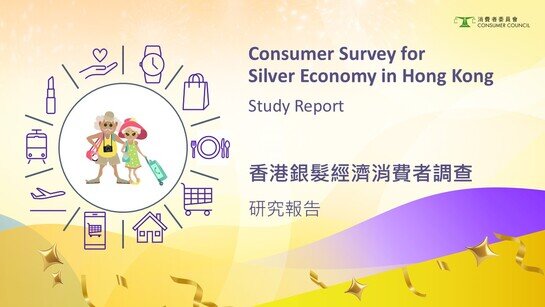Overview
Over-indebtedness is an important issue worldwide. For Hong Kong, a local survey on young working adults showed that over 60% of the respondents had overspent and almost one-third were in debt. When things go seriously wrong for either the money lenders or the borrowers, this can bring about wider social-economic implications.
Both borrowers and money lenders have responsibilities in relation to credit and debt. On the one hand, borrowers have to make a proper assessment of their ability to repay the loan, and must provide accurate information to the money lender to assess the suitability of the loan. They also need to understand that once they sign a loan agreement, they have entered into a contract which they should honour. On the other hand, money lenders also have serious responsibilities. These include carrying out a prudent assessment of a borrower’s ability to repay a loan, offering transparent and fair interest rates and contract terms, abiding by responsible marketing practices, and managing customer relations with due respect for consumer rights, such as having systems in place to assist debtors who are in difficulties.
According to the findings of this report, consumers face aggressive marketing practices coupled with opaque terms and conditions calculated to induce consumers into thinking that loans are easy and convenient to apply for, with apparently “low” interest rates which borrowers should be able to repay. Disclosures are either after the fact, or hidden in complex terms in fine print in contracts (if available) which consumers do not understand or are pressured to sign in haste. There is little surprise that consumers are ill informed of the true cost of loans and their obligations.
This report by the Consumer Council (“the Council”) reviews the consumer lending practices and the current laws and regulations in Hong Kong to gain an insight into the state of the market especially from the consumers’ perspective. As mentioned, what is revealed is a worrying picture of inadequate regulation and oversight, questionable practices by some money lenders and a lack of market transparency. This report sets out a range of recommendations for consideration by the Government, money lenders and other players in the money lending market aimed at strengthening the governance of the industry and bringing better protection to consumers when engaging in these services.
Recommendations
With expansion and technological developments in the financial market and money lending business, some overseas jurisdictions have already introduced different regulations for the financial technology (“FinTech”) market to ensure fair markets and to protect consumers from malpractices. In stark contrast, in Hong Kong, the MLO has been enacted for 40 years with no major reform. To empower consumers to make fully informed money borrowing decisions and to ensure that money lenders practice responsible lending, new regulatory measures with a series of changes in the money lending industry are necessary.
Based on the findings in this report, the Council puts forward the following four recommendations:
(1) Strengthen Consumer Education and the Provision of Advisory Services
- The Government should take a lead role to coordinate with the NGOs and the trade to formulate effective strategies and roll out a platform to deliver timely and handy consumer education, information and advice on debt management, as well as help consumers explore alternatives.
- For Education, consumers need:
- Easy access to information and the ability to understand that information.
- Financial management guidance and assistance especially at those points when they are most vulnerable to over-indebtedness (such as losing a job or facing long-term illness).
- For Advisory Services, they should include:
- General information and budgeting advice, support in managing and repaying debts, and specialised legal advice.
- Loan searching facilities and explore alternatives for credit provision.
(2) Amend Existing Legislation
- Establish a Sector Specific Regulator to oversee the money lending industry
- To consolidate the regulatory function of the three separate bodies governing money lenders into a industry-specific regulator.
- Impose a duty of carrying out Prudent Credit Assessment
- To ensure responsible lending, money lenders be obliged to conduct prudent credit assessments before loan granted. Once duty in place, issuance of guidelines by the regulator on how various obligations should be discharged.
- Adjust the Interest Cap to a maximum of 48%
- A 2 tiered interest cap has remained at 60% and 48% since 1980. A universal cap is adopted in other jurisdictions with no differentiation between secured and unsecured loans.
- Maximum rate of 48% seems more appropriate.
- Additional requirements on Advertising Practices
- To prohibit misleading content in advertisements.
- Should not imply that credit is available regardless of the borrower’s financial status or trivialise the seriousness of taking out a loan; nor should it be disproportionately light-hearted.
- Should have mandatory guidelines in place requiring a clear and easy to understand warning statement to be displayed throughout the entire advertisement irrespective of the duration, together with a clear read out for at least 3 seconds.
- A common approach be adopted in calculating and presenting the interest rates to enable easy comparison. It is suggested that APR calculation may be used across the board.
(3) Recommendations for the New Sector Specific Regulator
- Strengthen vetting process of licence applications and to raise the bar for entry requirements and introduce a fit and proper criteria
- Set guidelines for threshold requirements e.g. requisite professional standards and integrity requirements for applicants, such as work experience and education level.
- Capital requirement.
- Extending background checks to include ongoing or concluded investigations/judgments.
- Approval requirements for subsequent changes in directors and management.
- Lay down regulations/guidelines for prudent credit assessment
- To enable money lenders to carry out this exercise more easily, regulator to consider putting in place requirement for mandatory collection of consumer credit data and for the data to be placed into a central data repository to be shared amongst relevant stakeholders.
- Introduce best practices and eliminate unscrupulous trade practices through use of strengthened licensing conditions and regulations
- To incorporate the current voluntary COP of LMLA into licensing conditions to promote best practices, e.g. information disclosure requirements.
- To introduce regulations to address unscrupulous practices e.g. unchecked use of debt collectors and abusive use of personal data of referees for marketing or other purposes.
- Mandatory to inform and disclose to the borrowers the possibility of sub-mortgage of their properties as security before entering into loan agreements.
- Enhance enforcement and handle complaints
- To empower the Regulator with additional enforcement tools such as public reprimand, enforcement notices, pecuniary penalty, ban from engaging in money lending business, remediation order, disciplinary actions etc.
- The Regulator should also set up a department to handle complaints.
(4) Improving market transparency
- The Regulator to collect loan profiles from money lenders on a systematic and regular basis, such as total amount of new loans, outstanding loans, average tenor, general demographics of borrowers, arrears and default rate.
- Enforcement statistics to be published on a regular basis to enhance regulatory transparency, such as number of objections made, number of licences revoked/suspended, number of inspections made, reasons for objection/suspension/revocation, number of warnings/advisory letters issued, number of complaints received, etc.
Conclusions
- There is no moralising on the rights and wrongs of borrowing and it is acknowledged that money lenders have a legitimate role and function in the society.
- The Council advocates the importance of striking a balance to maintain reasonable access to credit from money lenders and enhancing consumer protection.
- The introduction of a sector specific regulator would lead to better governance of the industry, ensuring fairness between money lenders and borrowers, as well as enhanced consumer protection.
- To develop a culture of healthy and responsible borrowing for Hong Kong, consumer education on financial management and prudent access to credit should be strengthened.
The full report can be downloaded here.











